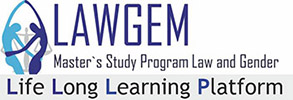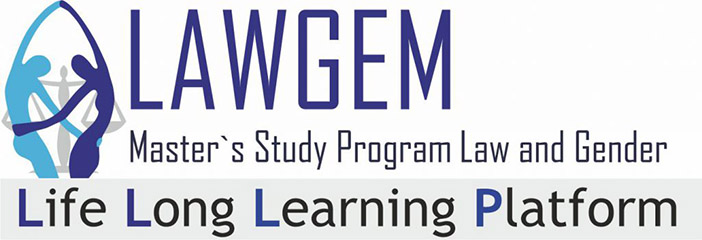The implementation of LAWGEM project has led to the publication of books of great importance not only for teaching staff, but also for legal practitioners, students, as well as anyone else interested in acquiring a better understanding of contemporary gender competent legal questions.
This also relates to the book Intersectional Discrimination of Women and Girls with Disabilities and Means of their Empowerment (Ljubinka Kovačević, Dragica Vujadinović, Marco Evola /eds/, University of Belgrade Faculty of Law, Belgrade, 2022, XLI + 955 pages).
A little over three decades ago, Professor Kimberlé Crenshaw introduced the concept of intersectionality into legal theory, providing a better understanding of the cumulative effect of several different grounds of discrimination and the legal problems that arise thereof. This encouraged authors from various legal, and many other disciplines (especially sociology and political science) to consider the possibilities and the limits of the intersectional approach. The same applies to legal science, especially as the concept of multiple discrimination, which includes intersectional discrimination, has been coined in the meantime. Nevertheless, legal science inherited a smaller number of publications on implementation of the intersectional approach than other disciplines, which is one of the reasons that this edited volume is dedicated to the issue of intersectional discrimination. This book is focused on the intersectional discrimination of women and girls with disabilities, because authors wanted to offer a book in which the position of this vulnerable and marginalized group is considered from the point of view of different branches of law (human rights law, anti-discrimination law, civil law, family law, company law, labour law, social security law, tax law and criminal law), as well as from the point of view of several extra-legal disciplines (social policy, economic analysis of law, law and religion, sociology, and criminology).
It also offers an evaluation of legal responses to intersectional discrimination of women and girls with disabilities.
The initiative for publishing this book was born at the conference “Gender (in)equality of persons with disabilities” organized by University of Belgrade Faculty of Law, with the support of the UN Agency for Gender Equality and Women’s Empowerment UN Women, and under the auspices of the scientific project LAWGEM. This book offers theoretical and practical insights into issues of importance for the legal position of persons with disabilities in general, and women and girls with disabilities in particular. The papers included in the book will help explain how disability and sex/gender intersect in the context of social, political and economic processes, as well as expound on legal instruments that contribute to the creation of conditions for effective enjoyment of human rights and fundamental freedoms for all. The hope remains that with the publication of this edited volume, a firm step forward will be made in the efforts to improve the visibility of intersectional discrimination, and to contribute to its solution by systematizing the existing knowledge in this field, as well as through methodological innovations and consideration of a multitude of topics from all of the basic legal disciplines and some other scientific disciplines. Authors are also hoping that the contributions published in the edited volume will inspire other scholars to consider disability as an analytical category and to include it in their research on a regular basis.


